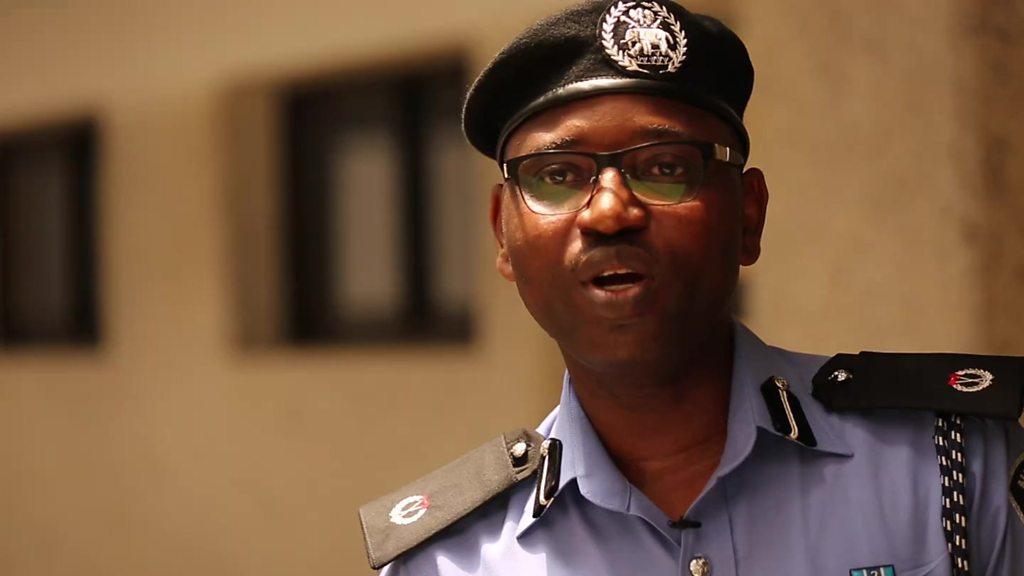Black Lives Matter: Activists demand #EndSARS protesters' release
- Published
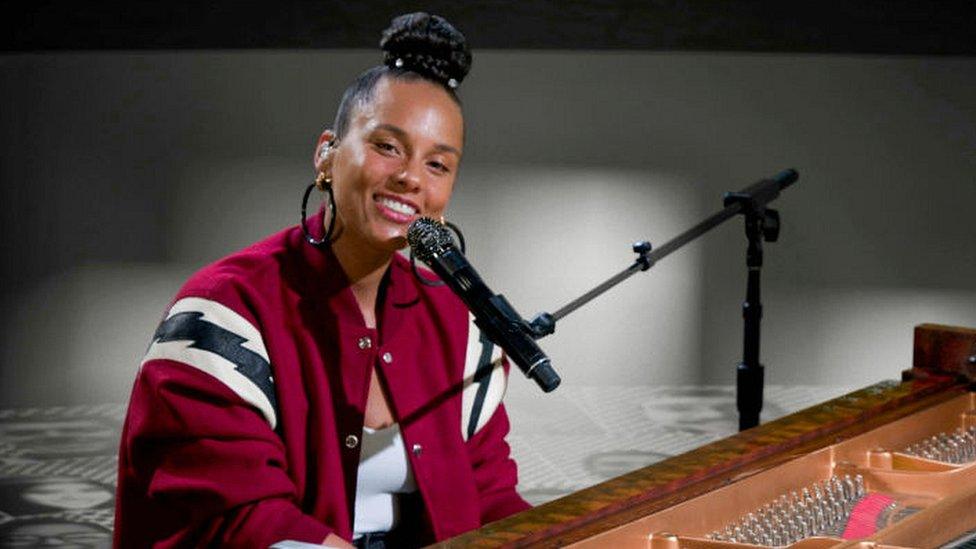
Alicia Keys was one of a number of celebrities to put her name to the letter
Prominent Black Lives Matters activists and celebrities have written to Nigeria's president demanding justice over the treatment of people during protests against police brutality.
The group, which includes singer Alicia Keys and campaigner Greta Thunberg, urged President Muhammadu Buhari to free jailed protesters.
They also called for a "transparent investigation" into the alleged killing of protesters by armed forces.
"We cannot stay silent," they said.
Witnesses say they saw soldiers open fire on protesters at a toll gate in the wealthy Lagos suburb of Lekki on 20 October. It followed weeks of protests, which began against the now-disbanded, much-hated police unit, the Special Anti-Robbery Squad (Sars), but then morphed into greater calls for better governance.
"In the midst of a global pandemic, your people sought to bring peace and justice to their land, and they made Africa and its diaspora proud in doing so," the letter to President Buhari said.
"Yet their peaceful requests were met with state-sanctioned violence and suppression, as your administration meted out unwarranted force against its own unarmed citizens."
The letter was organised by #BlackLivesMatter movement co-founder Opal Tometi, and timed to coincide with International Human Rights Day.
How and why did Nigeria's End Sars protests turn into End Swat protests?
Other signatories included actors Kerry Washington, Danny Glover and Mark Ruffalo, as well as writers Afua Hirsch, Reni Eddo-Lodge and Naomi Klein.
"As people who have supported the Black Lives Matter movement in the United States and throughout the diaspora, we cannot be silent when similar atrocities take place in African countries," the letter said.
"We demand respect for the Nigerian people, especially as they engage in their constitutional right to protest grave injustices."


For Black Lives Matter, highlighting injustices on the African continent is part of its wider mission to intervene in violence inflicted on black communities by the state.
Many of the signatories to the letter are members of the African diaspora, including Opal Tometi, whose parents are Nigerian. She told the BBC she has friends and family in Nigeria, so this feels personal. She believes the international community needs to continue to apply pressure on the Nigerian government to deliver justice for victims of brutality by the armed forces.
However despite the big name endorsements, it's unlikely the letter will lead to a change of tack from the Nigerian government.
In the immediate aftermath of the Lekki tollgate shooting, public figures, including former US presidential candidate Hillary Clinton and President-elect Joe Biden, called on the Nigerian government to hold those accountable responsible.
But the comments were brushed off by the authorities; and just this week President Buhari reiterated that any form of violent protest would not be tolerated.
On Monday there was a heavy police presence around the tollgate following calls for a second phase of protests to begin. It seems the authorities are determined to stop a repeat of the scenes of widespread street protests across Nigeria in October.
However stopping the #EndSARS social media campaign will not be so easy. Young Nigerians have seen how much influence they can yield - this letter is evidence of that.
Just last night at the Mobos, Afro pop singer Tiwa Savage referred to the Lekki tollgate shooting in her performance, singing "who gave the order?" Young Nigerians have vowed not to give up until the question is answered.

As well as demanding the release of all jailed protesters, activists and journalists, the signatories demand that all soldiers and security officials responsible for the shootings at Lekki Toll Gate are held to account, and that the ban on peaceful protests is lifted.
Amnesty International says 12 people were killed in the shooting, although the Nigerian army insists its soldiers were firing blank bullets.
A judicial panel has been set up in Lagos to investigate both events at Lekki and the activities of Sars. While it promises neutrality and justice, some protesters say they fear government retribution if they speak out.
Since the protests, a number of activists say they have been targeted by the authorities. Some have had their bank accounts frozen by the Nigerian Central Bank and some have been detained without charge, before being eventually released.
Related topics
- Published1 December 2020
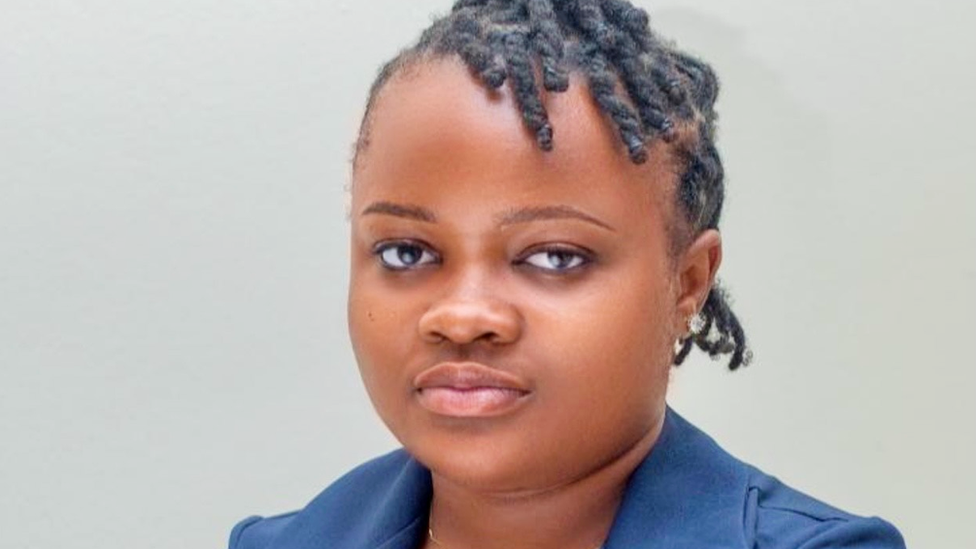
- Published27 November 2020
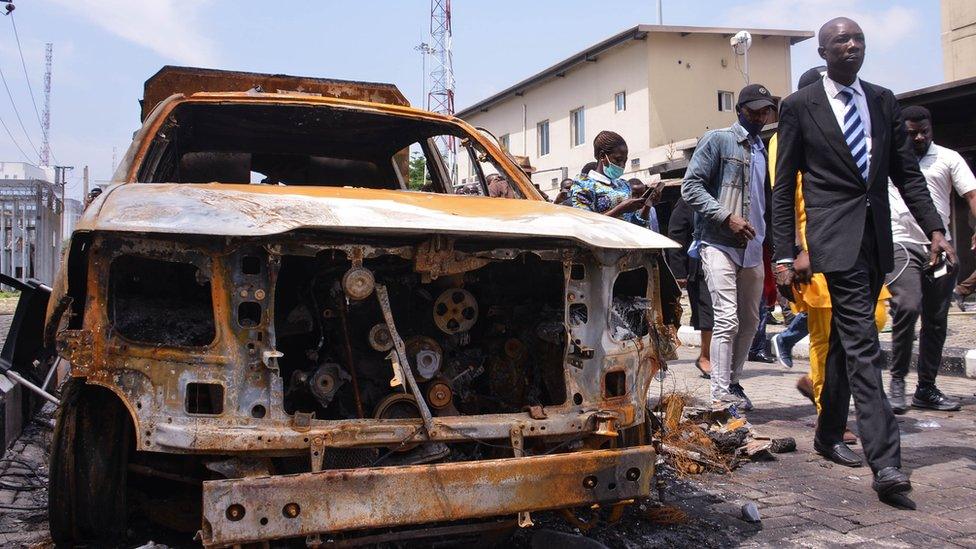
- Published13 October 2020
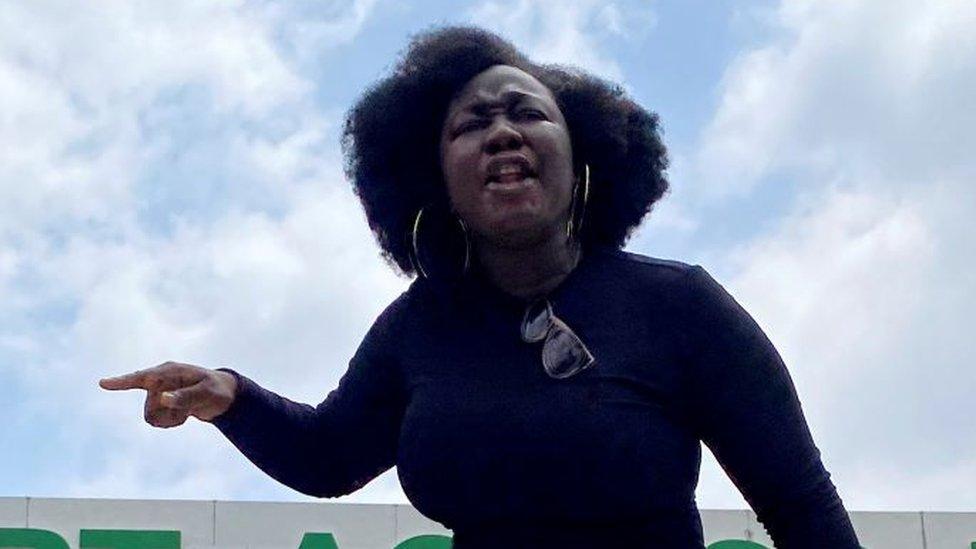
- Published1 October 2020
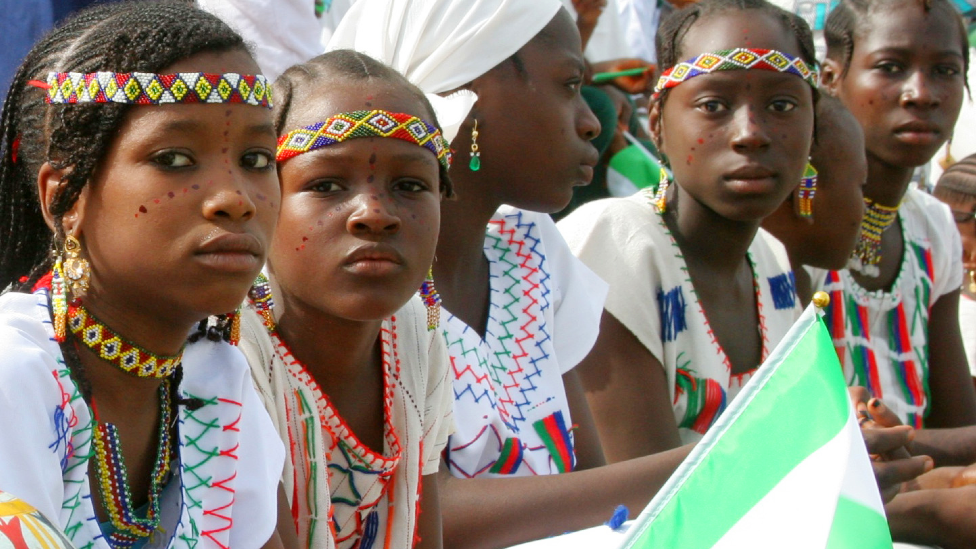
- Published17 November 2016
